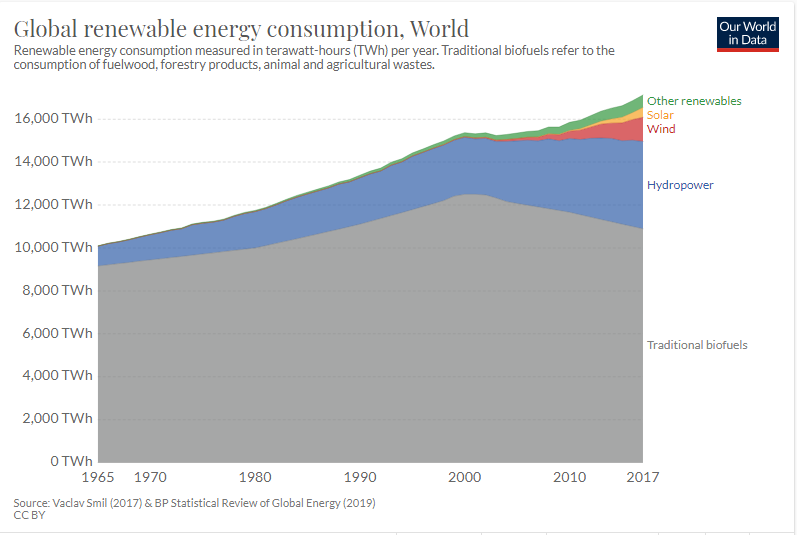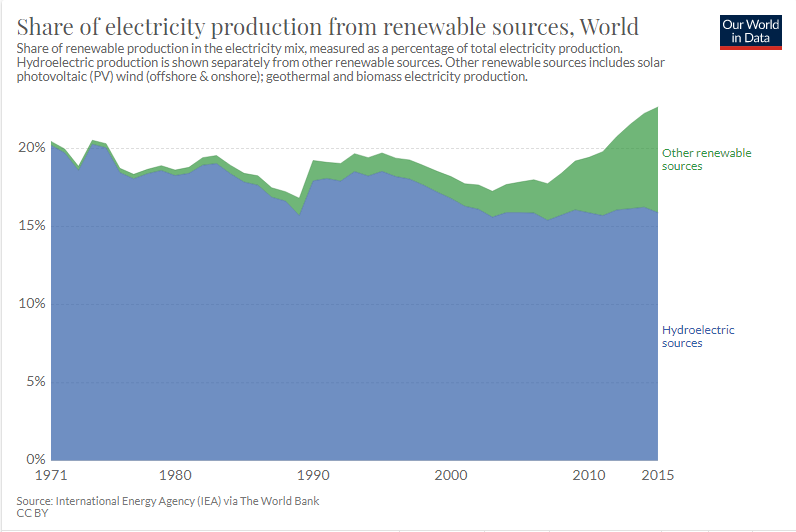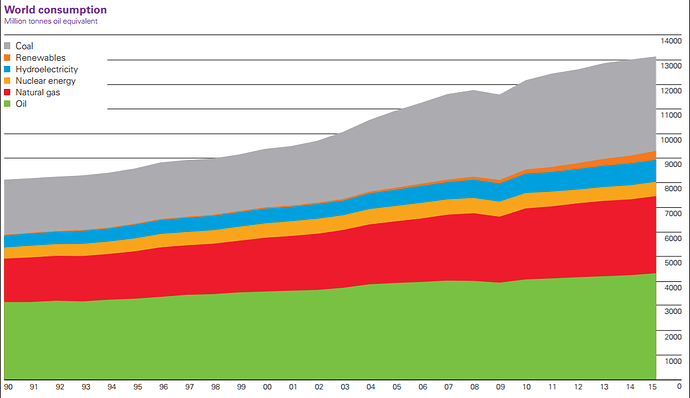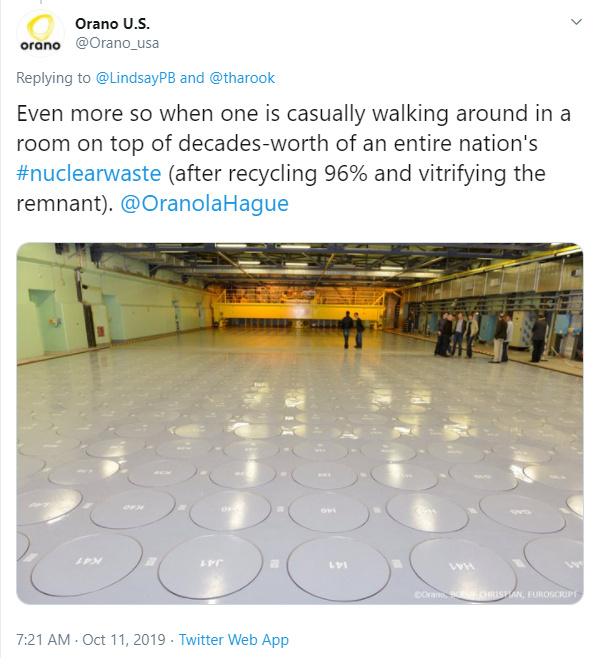If you believe in climate change and you’re not championing Nuclear power as a critical piece of reducing carbon, you’re not being realistic.
I follow several people on Twitter that are experts in the field. The most prominent is Ben Heard, from Australia who founded brightnewworld.org and is a proponent of using nuclear power to address the global catastrophe that is climate change.
Yes, renewables like solar, wind, tidal, are all great types of renewable energy. But they will never compete with Nuclear on electrical generation to replace what is called the “Baseload” that high carbon electrical generation currently produces today.
Let’s put this in perspective shall we? Frorm here:
Baseload is the electrical generation you need all the time. Ben Heard has a great article on it.
If we zoom into renewables:
The important part here is over the course of the last 45 years, renewables have not even been able to accommodate 5% of the energy growth as the world continues to consume more & more energy.
How about those fossil fuels, eh?
So if you believe there is a climate emergency, and you are against Nuclear, I’d love to hear how realistic you think it is to believe that energy generation, which creates such a massive CO2 debt, can be replaced.
Other good links:
@Fifth_Fret brought up this awesome online book that has volumes of information on energy use and renewables and how climate change is impacted: https://www.withouthotair.com/
http://large.stanford.edu/courses/2017/ph241/albokhari2/docs/bp-2016.pdf
PS: I didn’t want to resurrect a thread from 2013 b/c it was too focused on the US.



